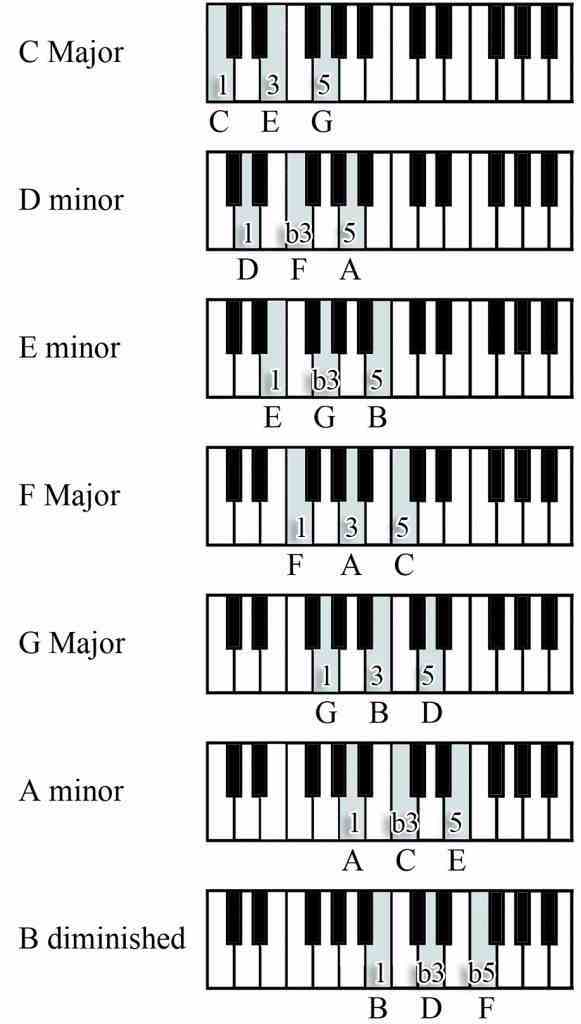

They’re not the most common C shapes, but used enough to include here as interesting alternatives. The following shapes are alternative ways of playing the C Major chord shape.
The key of D minor (Dm, Edim, F, Gm, Am, Bb, C). The key of E minor (Em, Fdim, G, Am, Bm, C, D). The key of A minor (Am, Bdim, C, Dm, Em, F, G). The key of F Major (F, Gm, Am, Bb, C, Dm, Edim). The key of G Major (G, Am, Bm, C, D, Em, Fdim).  The key of C Major ( C, Dm, Em, F, G, Am, Bdim). The C chord can be found in the following keys:
The key of C Major ( C, Dm, Em, F, G, Am, Bdim). The C chord can be found in the following keys: 
This is one of the most commonly used chord shapes and one of the first ones that most guitarists learn. The most common way to play the C chord is in the open position. If you’ve come to this page just to view some chord diagrams for C, here they are. The chords in the key of C Major are C, Dm, Em, F, G, Am, B diminished.
C is the first chord in the key of C Major. The C Major chord (just like all Major chords) contains the following intervals (from the root note): Major 3rd, minor 3rd, Perfect 4th (back to the root note). The C Major chord is produced by playing the 1st (root), 3rd and 5th notes of the C Major scale. The C Major chord contains the notes C, E and G. The key of C contains no sharps or flats (C, D, E, F, G, A, B), therefore, the key of C is often used as a kind of ‘default’ key when doing music theory examples. The open C chord is one of the first chords that many guitarists learn. The C Major chord is one of the most common and popular chords on the guitar.







 0 kommentar(er)
0 kommentar(er)
